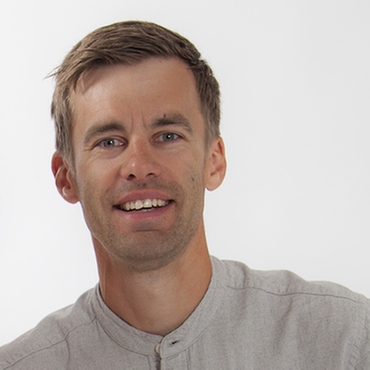
About me
Johan Lugnet
Associate Professor
Research subject: Information systems
Division: Digital Services and Systems
Department of Computer Science, Electrical and Space Engineering
I research and teach at the Division of Digital Services and Systems in the research group - Information Systems. I have experience from applied research and skills in knowledge sharing and collaborative work. In recent years, the focus has been on SMEs and their ability to digitalise and mainly linked to human factors when it comes to information security.
Johan Lugnet, born 1983, researcher and associate professor (Docent), PhD at Luleå University of Technology (LTU). Has a multidisciplinary educational background within the Arena Innovative Technology and Entrepreneurship at LTU.
Currently working in the research group Information Systems in the Division of Digital Services and Systems at the Department of Systems and Space Engineering.
- Associate Professor (Docent) in Information Systems specialising in Information Security, Luleå University of Technology, Luleå, 2023.
- Doctor of Technology in the field of Product Innovation, Luleå University of Technology, Luleå (March, 2015). Thesis: Conversation in Engineering Teams - Turning Experiences into Action
 External link, opens in new window.
External link, opens in new window. - Technical Licentiate in Functional Product Development, Luleå University of Technology, Luleå (March, 2012).
- Master of Science in Mechanical Engineering, Arena Innovative Technology and Entrepreneurship, Luleå University of Technology, Luleå (Jan, 2010).
Digitalisation has gained much attention, resulting in organisations needing increased awareness and understanding of challenges related to both technical and social dimensions of information security. I do not believe that information security is merely a technical challenge but also socially constructed. These socio-technical aspects are something that I find very motivating and fascinating to research. How and why questions help me perform applied research to understand information security's social and organisational nature. My background of doing research in large knowledge-intensive companies supports the studies focusing on how to help organisations to plan and collaborate to make informed decisions and strategic choices, to act competitively in a digital and global market. In one of my research projects, I have identified that uncertainty and a risk focus are obstacles to SMEs' willingness to invest in new business models tailored for digitalisation and digital services. Understanding such practices, the choices made, and why they contribute to information security on a strategic level. It can also lead to better insights and foster sound IT behaviour. Applying new working routines can help organisations to identify situations, train the skills needed and increase awareness among practitioners.
As a researcher, I will continue identifying the need for new knowledge within digital service design and information security research. I want to stay within applied research, digital trust, and maturity in the era of Industry 4.0, and digitalisation triggers my interest. This posed new challenges in introducing and fostering sound security awareness and knowledge regarding organisational and social issues concerning confidentiality, integrity, and availability (the CIA triad). This brought my attention to the concepts of twin transition, i.e., sustainable and digital change and security by design.
Research interests
- Information security: Social and organisational challenges to better understand the underlying work routines. From a practice-based perspective looking into socio-technical dimensions of information security in the intersection between different research domains.
- Experience sharing: Knowledge-intensive work in research and development organisations.
- Collaboration in design teams: Exploring how teams innovate in the early phases of product and service development.
- Conversation and motivation strategies: Supporting continuous learning and improving the understanding of how individuals’ motivation affects design activities.

Updated:
Published:
